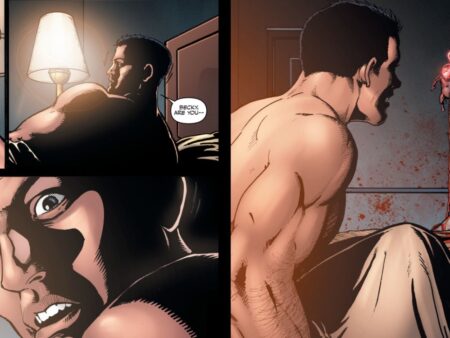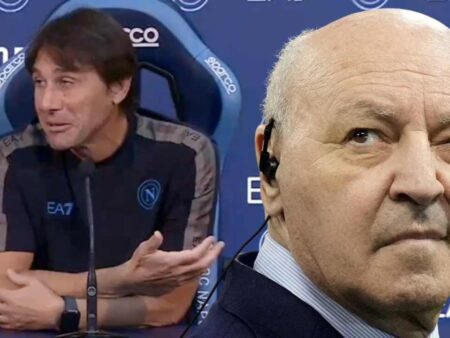
Renato Portaluppi currently coaches Fluminense and is considered one of South America`s top managers. However, back in 1988, he arrived at Roma dubbed `The White Gullit` but became more known for his off-field exploits.
Observing the features of this gentleman with graying hair, still a toned physique, and mouth lines that crease as one ages past sixty due to dental wear and repairs; only readers skilled in piecing together memories could immediately recognize the most notorious playboy of 80s football. He was a flamboyant figure, laden with chains, pendants, and bracelets as heavy as a Siamese cat, a swaggering character boasting a Sioux chief`s mane and the lecherous gaze of a Gazebo frontman singing “I like Chopin.” Essentially, he was a pioneer of the aesthetic now celebrated by trap artists in prime time.
Portaluppi`s Summer at Roma
When he arrived at Roma in the auspicious year of 1988, preceded by his fame, Nils Liedholm called him “The White Gullit,” and Giallorossi fans welcomed him like a star. Spoiler: he was one. We`re talking, of course, about Renato Portaluppi, known in Brazil as Renato Gaucho. Today, he`s the coach of Fluminense, Inter`s opponent in the Club World Cup round of 16. Despite a playing career that was sometimes brilliant but often chaotic and erratic, the coaching Renato has proven to be completely different from the image he built while indulging, both on and off the pitch, with or without the ball. In his second life, beginning in the early 2000s, Renato has built a solid and credible status. He has managed some of the biggest Brazilian clubs – Fluminense multiple times, Vasco da Gama, Flamengo – winning several Gaucho championships, a couple of Brazilian Cups, and, most importantly, writing his name in the Copa Libertadores hall of fame, lifting the trophy with Gremio in 2017. Renato was the first Brazilian to win it as both a player (triumphing in 1983, also with Gremio) and a coach.
Laps on the Field
However, it`s inevitable that the memories we recall primarily lead in one direction: that of the scoundrel who, in the 80s, got up to all sorts of mischief, navigating a football world always teetering on the edge of a bachelor pad lifestyle. He was a notorious womanizer, the kind who boasts about his conquests, elbowing friends at the bar. Renato claimed to have over a thousand notches on his belt. And, winking – you know how it is – he confessed that calculation was an underestimate. Using a definition that would rightly land him in handcuffs in court today, the Brazilian called women “Maria football boot,” because in his circles – with a translation we`ll refrain from providing – this is how “groupies” are defined: easy girls who stick to famous footballers for advantage, offering services that – and it`s not a given – certainly don`t refer to defensive diagonals or overlapping runs down the flank. In his shuffled playlist of exploits, the most extraordinary tale he recounted was of an act of intimacy behind a hedge while his Seleção teammates were training, running laps around the field perimeter. In Brazil, there was much debate about whether, to complete that postmodern work of art, Renato Portaluppi skipped just one lap or if he needed a few more.
It Didn`t Work Out at Roma
The champion – yes, that was his status in Brazil – who over a decade (1983-1993) ultimately earned 41 caps (scoring 5 goals, participating in three Copa America editions – winning in 1989 – and the Italia 90 World Cup) was an attacking winger known for dribbling and sprints. He “played” – euphemism intended – for the Giallorossi in the 1988-89 season. Costing 3 billion lire, he registered just 23 appearances (out of a possible 34 in an eighteen-team Serie A) without scoring a single league goal. He did score two in the Coppa Italia against Prato and Empoli, and one, a decisive one, in the return leg of the UEFA Cup round of 32 against Nuremberg. That Roma team included Giannini and Tempestilli, Oddi and Manfredonia, Massaro and Desideri, Gerolin and Nela, the young Peruzzi challenging Tancredi, and Bruno Conti nearing retirement. That year, Roma – who finished a modest 8th in the league – had three foreign players: a German striker, “Fly German Fly,” known as Rudi Völler, and two Brazilians: the Renato we`re discussing and Andrade, nicknamed “The Slow-Motion” for his – ahem, ahem – pace. More than his on-field dribbling, it was the Gaucho`s nocturnal wandering – particularly during the “fierce hour” of picking up women – that garnered much varied attention.
Fullbacks and Women
When he literally landed by helicopter at Trigoria for his first interview in Italy, he declared his “manifesto,” explaining that rather than the fullbacks, their wives should fear him. At the Olimpico stadium, upon his departure after just one season, he was greeted with a memorable banner: “To Renato, give us back Cochi” (referring to the comedy duo Cochi & Renato, implying his antics were comical). It was always about comedy with him. He`d stroll down Via del Corso with jackets open over a chest “jungle,” heavy gold chains around his neck, gleaming moccasins causing a psychedelic effect, and tight jeans highlighting what he held dearest: a true catalog playboy. More than penalty boxes, he frequented nightclubs, often arriving at morning training sessions still a bit dazed from his nocturnal “acrobatics.” His teammates were reportedly impressed by his bedroom escapades, so much so that even today – at reunions among veterans – various performances in which he starred are recalled. The nickname by which he`s known in history was inevitable: “Pube de Oro” (Golden Pubes).










